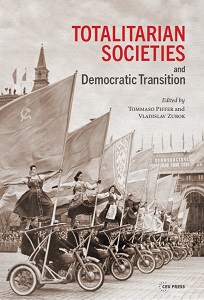Totalitarianism, Nationalism, and Challenges for Democratic Transition
Totalitarianism, Nationalism, and Challenges for Democratic Transition
Author(s): Gail Warshofsky Lapidus
Subject(s): Politics / Political Sciences, History
Published by: Central European University Press
Keywords: Totalitarianism;Nationalism
Summary/Abstract: From the very origins of the Soviet state, its successive leaders have faced the challenge of dealing with both the legacy of empire and the multi-ethnicity of its populations. It was Lenin who put in place the initial ideological concepts and institutional features of Soviet nationality policy, including recognition/support for national rights and cultural pluralism and the ethno-federal structure of the USSR, and Stalin who built on these foundations but developed them in new directions. In the period following Stalin’s death, his successors wrestled with the problem of balancing the inherent contradictions of his legacy. But Gorbachev unintentionally brought these tensions to the forefront when his efforts at liberalization and democratization of the Soviet system unleashed a series of challenges to both the ideological and institutional foundations of the system, which culminated in the dissolution of USSR. Nor did the challenge of reconciling nationalism and democratization end with the disappearance of the USSR. While many of the post-Soviet states could view the end of the Soviet system as a liberation, and an opportunity to construct a new and democratic future, for the Russian Federation the experience was traumatic. It involved the loss of substantial territories and populations, the loss of superpower status, and the loss of a legitimating ideology. As Vladimir Putin would later lament, it was “the greatest geo-political catastrophe of the twentieth century.” The sudden and unexpected collapse—and the widely voiced suspicion that it was the result of a nefarious plot by foreign enemies—created difficult and continuing problems in defining and legitimating a new and nonimperial Russian identity. Indeed, the pervasive fear that the Russian Federation could itself disintegrate along ethno-national lines was an important contributing factor in the movement away from the promise of a democratic post-Soviet Russia to the increasingly authoritarian and conservative regime that has emerged in the 2000s.
Book: Totalitarian Societies and Democratic Transition. Essays in memory of Victor Zaslavsky
- Page Range: 353-384
- Page Count: 32
- Publication Year: 2017
- Language: English
- Content File-PDF

